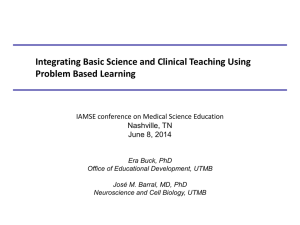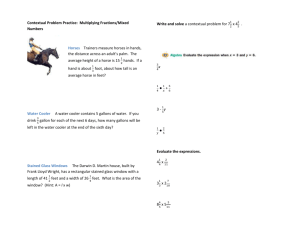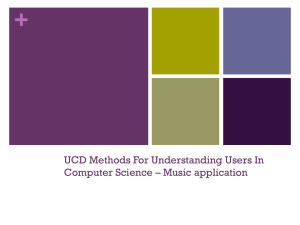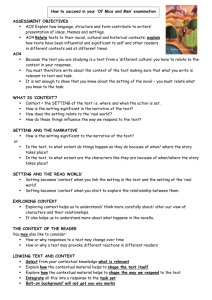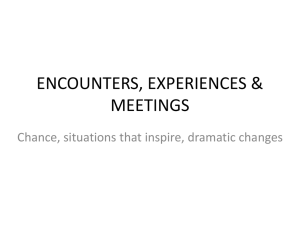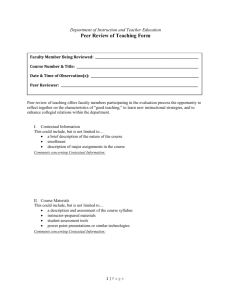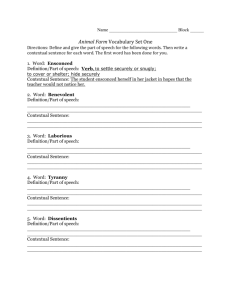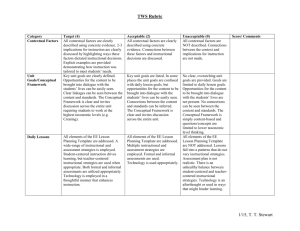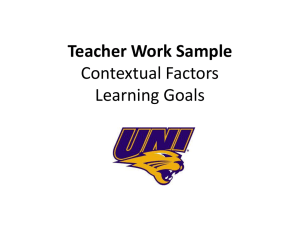Word document version
advertisement
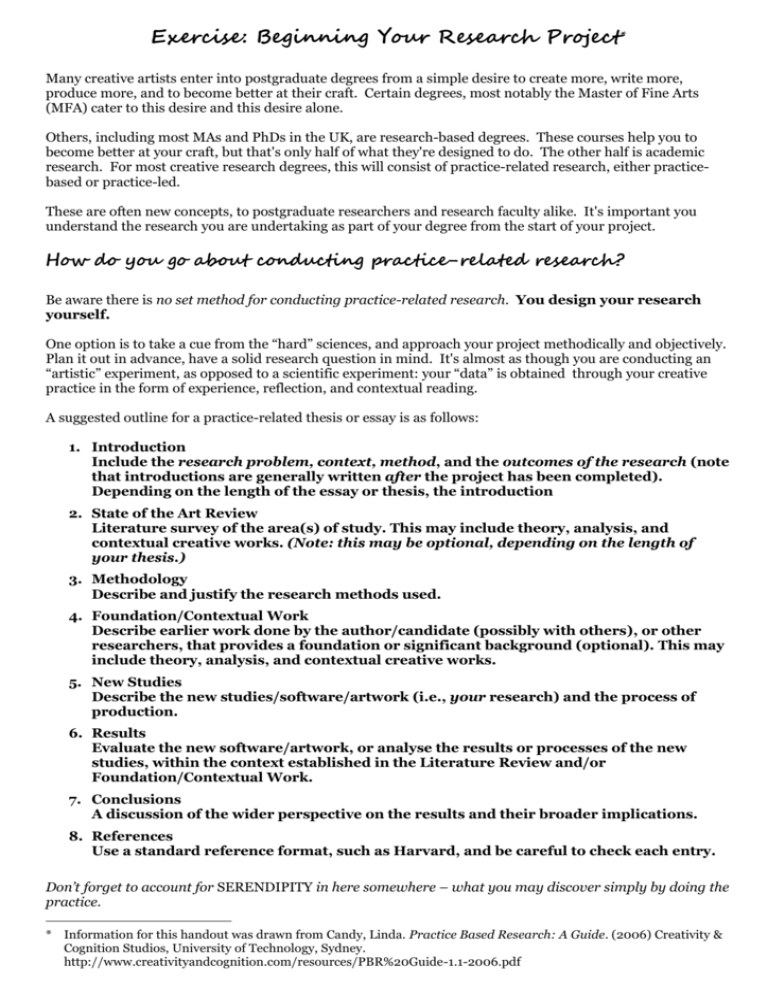
Exercise: Beginning Your Research Project* Many creative artists enter into postgraduate degrees from a simple desire to create more, write more, produce more, and to become better at their craft. Certain degrees, most notably the Master of Fine Arts (MFA) cater to this desire and this desire alone. Others, including most MAs and PhDs in the UK, are research-based degrees. These courses help you to become better at your craft, but that's only half of what they're designed to do. The other half is academic research. For most creative research degrees, this will consist of practice-related research, either practicebased or practice-led. These are often new concepts, to postgraduate researchers and research faculty alike. It's important you understand the research you are undertaking as part of your degree from the start of your project. How do you go about conducting practice-related research? Be aware there is no set method for conducting practice-related research. You design your research yourself. One option is to take a cue from the “hard” sciences, and approach your project methodically and objectively. Plan it out in advance, have a solid research question in mind. It's almost as though you are conducting an “artistic” experiment, as opposed to a scientific experiment: your “data” is obtained through your creative practice in the form of experience, reflection, and contextual reading. A suggested outline for a practice-related thesis or essay is as follows: 1. Introduction Include the research problem, context, method, and the outcomes of the research (note that introductions are generally written after the project has been completed). Depending on the length of the essay or thesis, the introduction 2. State of the Art Review Literature survey of the area(s) of study. This may include theory, analysis, and contextual creative works. (Note: this may be optional, depending on the length of your thesis.) 3. Methodology Describe and justify the research methods used. 4. Foundation/Contextual Work Describe earlier work done by the author/candidate (possibly with others), or other researchers, that provides a foundation or significant background (optional). This may include theory, analysis, and contextual creative works. 5. New Studies Describe the new studies/software/artwork (i.e., your research) and the process of production. 6. Results Evaluate the new software/artwork, or analyse the results or processes of the new studies, within the context established in the Literature Review and/or Foundation/Contextual Work. 7. Conclusions A discussion of the wider perspective on the results and their broader implications. 8. References Use a standard reference format, such as Harvard, and be careful to check each entry. Don’t forget to account for SERENDIPITY in here somewhere – what you may discover simply by doing the practice. * Information for this handout was drawn from Candy, Linda. Practice Based Research: A Guide. (2006) Creativity & Cognition Studios, University of Technology, Sydney. http://www.creativityandcognition.com/resources/PBR%20Guide-1.1-2006.pdf The Exercise In pairs, brainstorm a research project you can investigate with practice-related research. State the problem/area of interest. This is a concise statement of the research question or issue that the project addresses. State what you think is the context/state of the art. What is the main work that has been done that gives rise to the question and what is its significance? Brainstorm a method: the approach you might initially take to solve the problem. This is a key section in which the justification for using the practice element to explore the problem is outlined. Project the outcomes: results of the practice activity, including not only the resulting artifact but the knowledge outcomes as well. A final paper on this project, once completed, would include a conclusion: a discussion of how the results of the particular research project fits into the wider context that was outlined in part 2. Report to the class for discussion.
